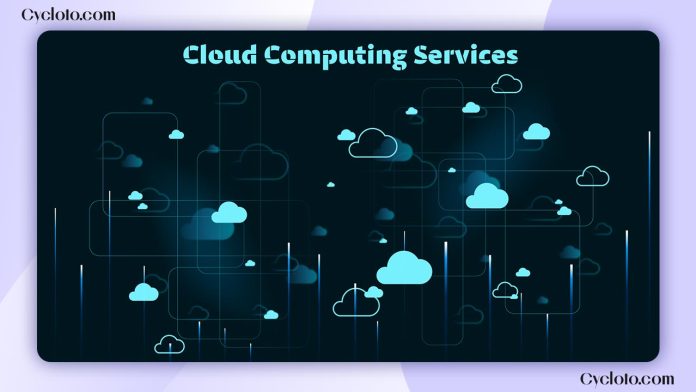First, let’s quickly talk about what Cloud Computing is and then explore which companies offer the best and most affordable Cloud Computing services for startups, small businesses, or larger enterprises.
Cloud computing is like renting space on the internet for your digital needs. Instead of storing files, running programs, or managing data on your own computer, you can do it all online through services provided by companies like Google Cloud or Dropbox.
Here’s how it works: imagine you have a document you want to keep safe and access from anywhere. Upload it to a service like Google Drive. Now, you can open that document from any device with an internet connection, whether it’s your phone, tablet, or computer. The service provider handles storing your documents securely, maintaining the servers, and ensuring you can always access your file when needed.
In simpler terms, cloud computing means you don’t have to worry about buying and maintaining your own hardware or software. You just pay for the space and services you need, and the provider handles the rest. Plus, you have control over your data—you can delete, change, or move it whenever you want.
This model is especially useful for businesses as it allows them to scale up or down easily as their needs change. Whether it’s storing huge amounts of data or running complex programs, cloud computing provides a flexible and cost-effective solution.
Now, let’s discuss some of the best cloud computing services available, ideal for startups or small businesses like yours.
Amazon Web Services (AWS)
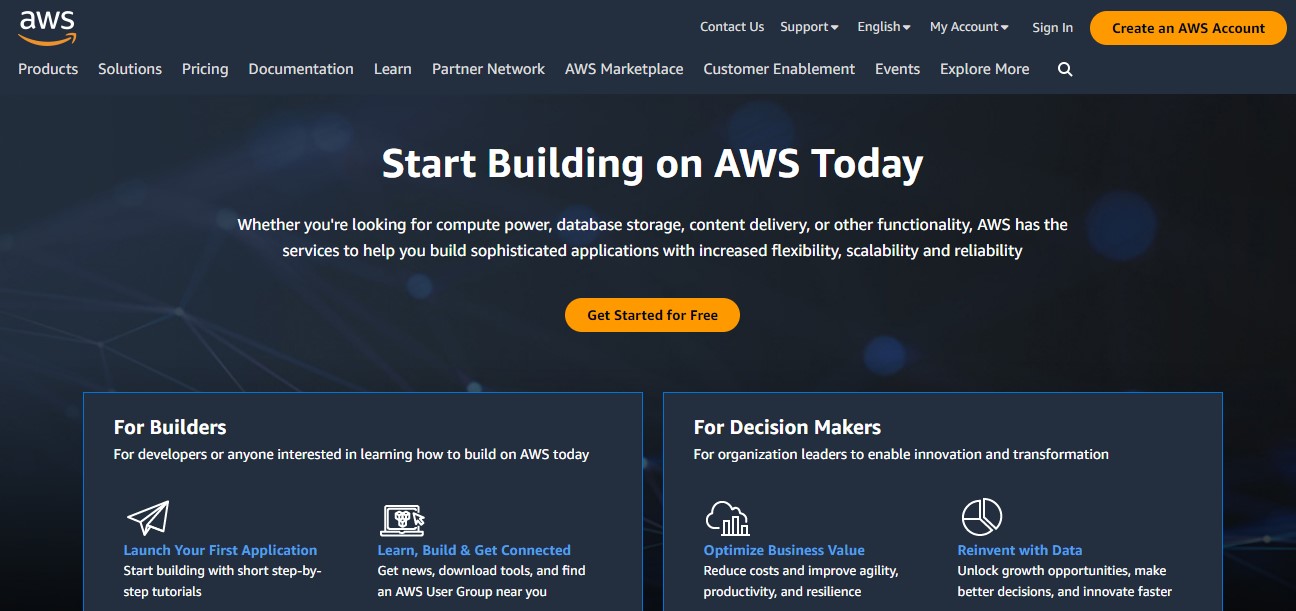
Amazon Web Services (AWS) is the leading cloud platform, launched by Amazon in 2006. It provides businesses with IT infrastructure services via cloud computing, making operations easier and more secure. AWS is popular for its user-friendly interface, flexibility, and strong API capabilities.
AWS offers a wide range of cloud solutions for businesses of all sizes. Its pay-as-you-go model ensures cost-effectiveness, allowing companies to scale resources efficiently. As the first major cloud provider, AWS has had more time to refine its services, resulting in a robust and reliable infrastructure with a proven track record. Additionally, AWS has a large, active developer community with extensive documentation and tutorials, which makes it easier for developers to start and troubleshoot issues.
Known for its simplicity and security, AWS holds a significant market share, accounting for 33% of the global cloud infrastructure market, according to the Synergy Research Group.
Microsoft Azure
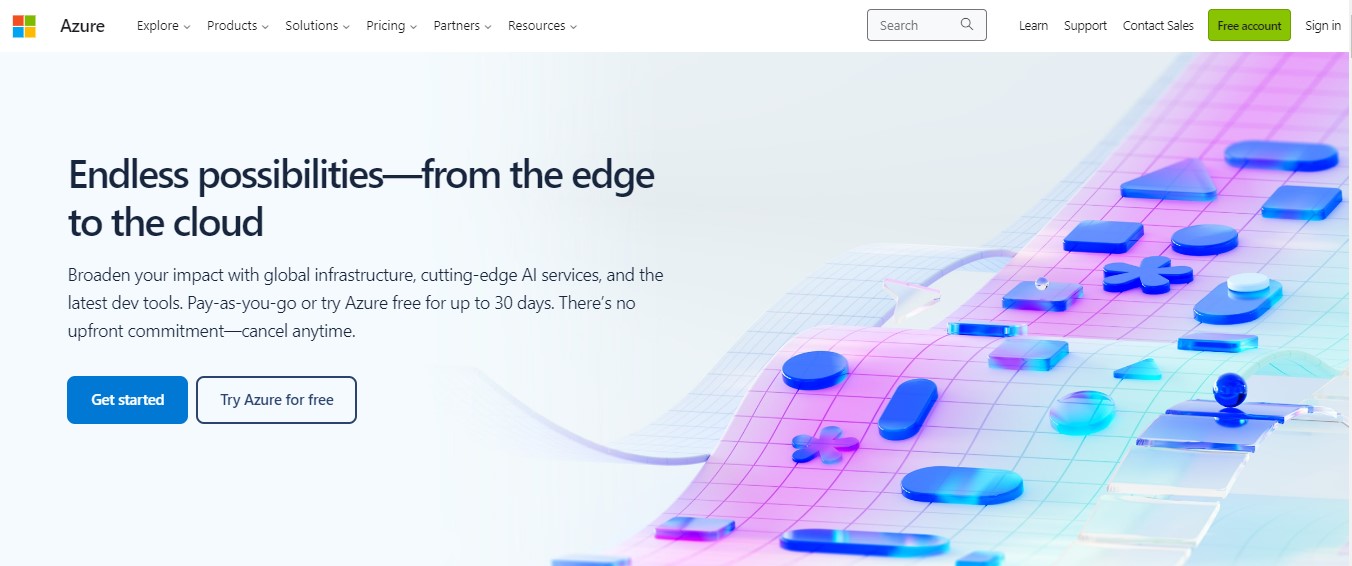
Microsoft Azure is another largest and most widely used cloud platform, launched by Microsoft in 2009. It integrates seamlessly with other Microsoft products like Office 365, SharePoint, and Windows Server.
For those already using Microsoft tools, Azure offers a smooth experience across their IT infrastructure. It is popular among large enterprises and government agencies due to its strong security features. In fact, Azure is the most trusted cloud platform by U.S. government institutions. Azure also follows a pay-as-you-go model, meaning you only pay for the resources you use.
Google Cloud Platform
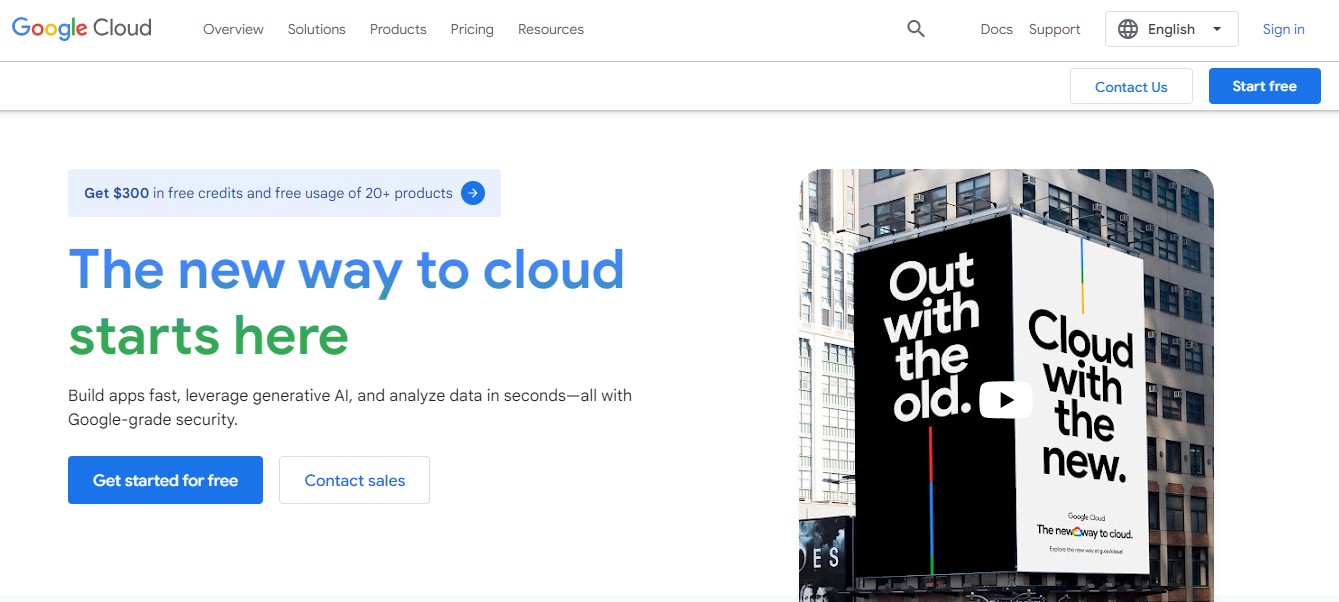
Google embarked on its cloud journey in 2008. Google Cloud provides computing, storage, networking, databases, and analytics similar to AWS and Azure. However, Google stands out for its speed and user-friendly interface. Products like BigQuery, Dataflow, and TensorFlow facilitate real-time storage and analysis of vast data sets. With Cloud Dataflow, you can process and transform data efficiently, while TensorFlow enables the training and construction of machine learning models.
Google Cloud operates on a pay-per-use. However, compared to rivals, GCP’s support options may be somewhat limited, particularly for free tier users. While Google Cloud prioritizes security, some businesses still harbor concerns regarding data privacy and control in the cloud.
Alibaba Cloud
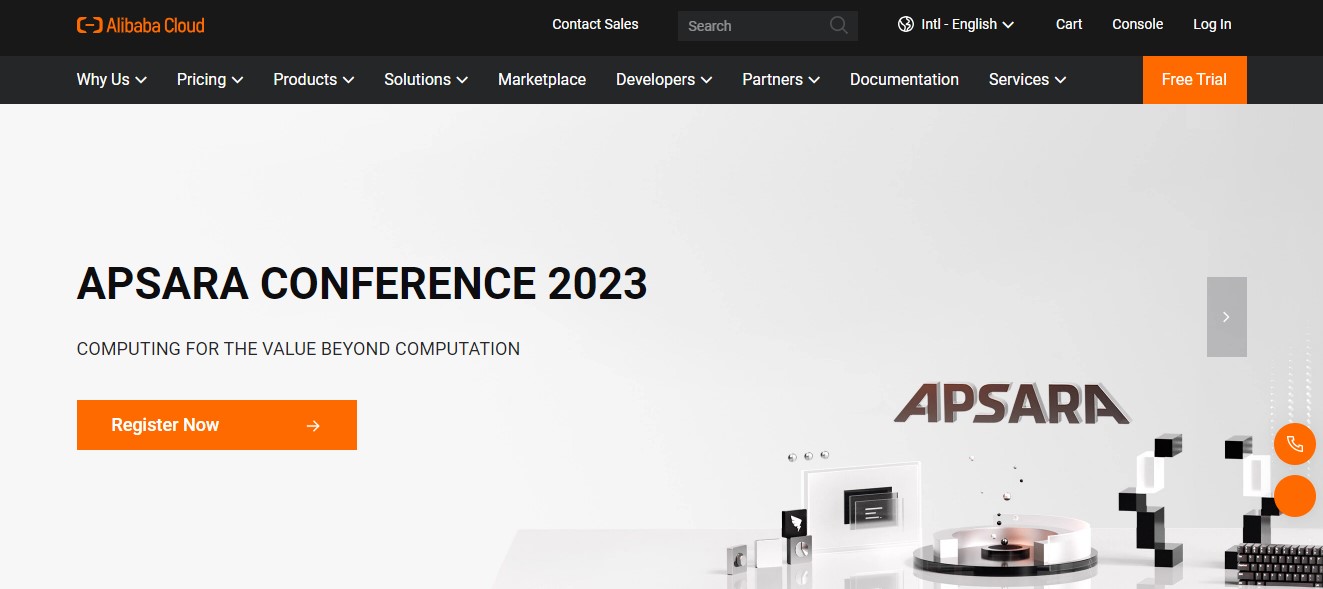
Alibaba Cloud launched in 2009, a year after Google Cloud, and quickly became the leading cloud provider in China. Initially designed for Alibaba’s ecosystem, it is now available to the public. One of its key advantages is its cost-effectiveness, often beating industry giants like AWS, Azure, and GCP. For businesses looking to reduce cloud computing costs, Alibaba Cloud is an attractive option.
With a vast network of data centers primarily in Asia, Alibaba Cloud offers excellent performance and low latency for users in the region. However, its presence outside Asia is smaller than GCP or AWS, which may affect performance for users elsewhere. Additionally, integrating third-party applications and services with Alibaba Cloud can be more complex than with some competitors.
If you’re located outside of Asia, other cloud platforms might better suit your needs. But if you’re in Asia, Alibaba Cloud is definitely worth considering. It provides nearly all the features of other platforms at a more affordable price, making it an appealing choice for businesses in the region looking for top-tier cloud services within budget.
IBM Cloud
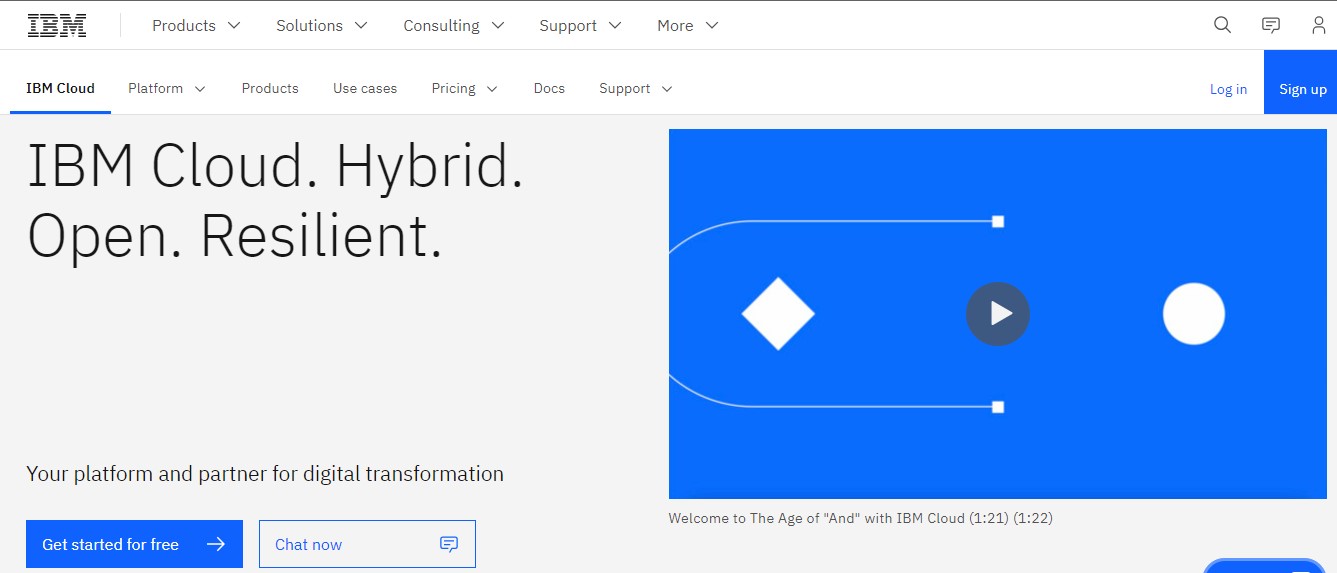
In the early days of computing, IBM played a key role in shaping the industry and continues to offer cloud computing services today. IBM Cloud stands out for its strong focus on security, featuring fault tolerance, data encryption, and key management. It even provides hardware certified to the rigorous FIPS 140-2 Level 4 standard, meeting the most demanding compliance requirements.
IBM Cloud excels in hybrid cloud setups, allowing businesses to seamlessly integrate their existing on-premises infrastructure with cloud services. This flexibility is particularly beneficial for companies with significant investments in their current IT systems.
However, IBM Cloud’s market share is smaller than AWS and Azure, which means fewer resources and a smaller support community. Additionally, its free tier options are more limited compared to competitors, restricting opportunities for experimentation. The interface of IBM Cloud is also considered less intuitive than other platforms.
FAQ of Cloud Computing
is WGU Cloud Computing Worth it?
Yes, the Cloud Computing degree program at WGU is worth considering if you’re interested in a career in cloud support engineering or cloud engineering. This program provides relevant certifications and enhances your job prospects. It offers three tracks: Azure, AWS, and mixed cloud, aligning with industry demands, especially the Azure track.
While it’s a valuable opportunity, keep in mind that the program requires commitment and adherence to deadlines. Also, WGU charges per term, so it could be cost-effective to take some classes at Study.com and transfer credits.
What’s the future of cloud computing?
The future of cloud computing is promising, with ongoing growth and innovation. Large businesses are adopting hybrid and multi-cloud strategies, moving away from relying on a single provider. Also, cloud computing is increasingly integrated with AI and ML, allowing businesses to easily gain insights from data and automate tasks.
As more data and tasks move to the cloud, ensuring security and compliance will be crucial, driving continuous investments by cloud providers. This trend also underscores the growing demand for skilled professionals in this sector, signaling a bright future for cloud computing.
What are the disadvantages of cloud computing?
We know that cloud services rely on internet connection, which means any disruptions can affect your business. These disruptions might be due to technical issues or internet problems. Storing data in the cloud can bring security risks, like data breaches or leaks, especially for sensitive information.
It’s crucial to choose a trusted cloud provider with strong security measures. although no online platform is entirely risk-free. Many well-known companies have experienced data leaks, highlighting this concern. Additionally, while cloud computing can save costs, these expenses can grow depending on your usage and storage needs.
We hope you enjoyed our blog. If you’d like to read more insightful articles, please visit our homepage.

